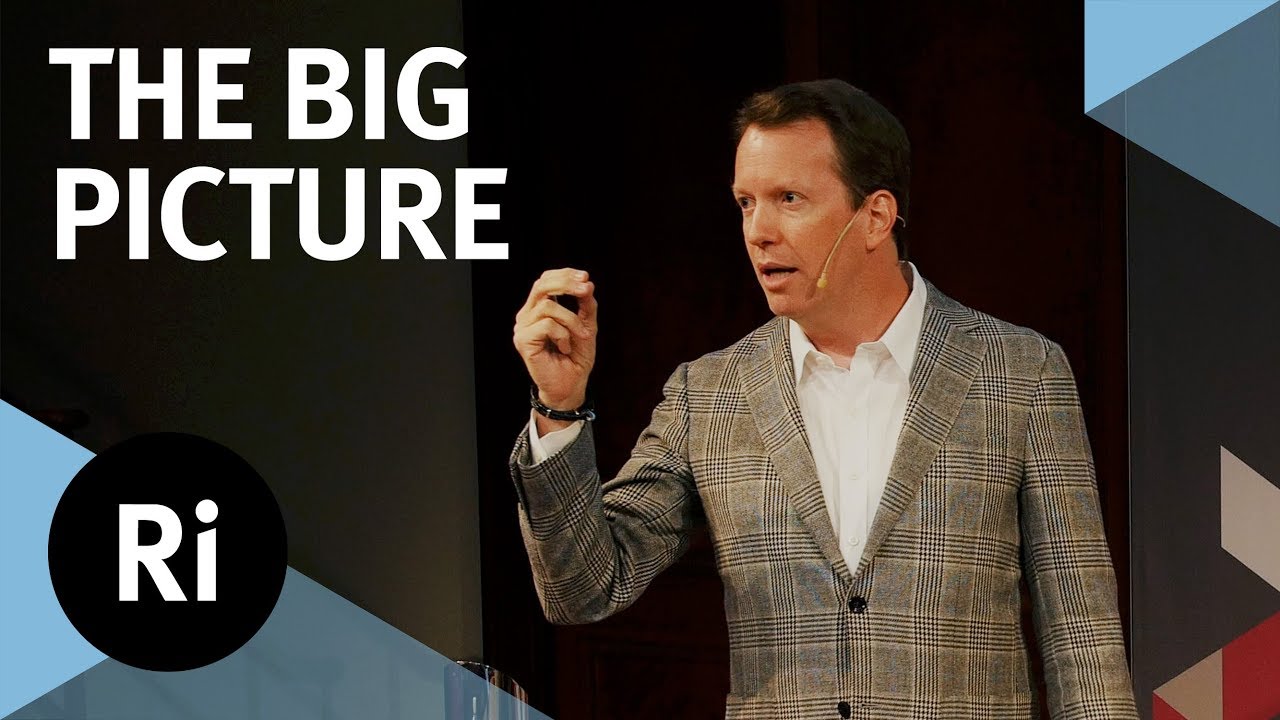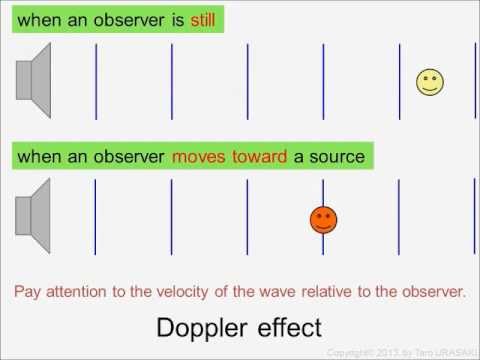The Royal Institution
Award-winning scientist and writer Sean Carroll ties together the fundamental laws of physics governing the workings of the cosmos with the everyday human experience we all share.
Subscribe for regular science videos: http://bit.ly/RiSubscRibe
The talk, given at the Royal Institution in October 2016, will take us on a breath-taking journey from the origin of the Universe, through the evolution of life and consciousness, to the eternal question of what it all really means.
Dr Sean Carroll is an astrophysicist at the California Institute of Technology. He has written a variety of popular science books along with textbooks and has long been interested in the biggest questions in astronomy: Where does probability come from? How does time work? What is dark matter and dark energy?
Watch the Q&A: https://youtu.be/KEt5XQuE_cY
This lecture was recorded at the Ri on 17 October 2016.
The Ri is on Twitter: http://twitter.com/ri_science
and Facebook: http://www.facebook.com/royalinstitution
and Tumblr: http://ri-science.tumblr.com/
Our editorial policy: http://www.rigb.org/home/editorial-policy
Subscribe for the latest science videos: http://bit.ly/RiNewsletter
Source




Important announcement : we've dropped the audio levels on our deafening intro! On a scale of mouse whisper to jet plane, how's it sound?
I hate the opening sound so much.
As far as I know, giraffes got the long legs first to be able to reach high-hanging fruits and developed the long neck to still be able to drink from ponds below.
Sean Carroll is a great explainer! I love hearing his lectures
I think he's wrong. Don't be fooled by the accent. He's no Bill Nye!
43:36 So we have figured it out… the meaning of life. Our true purpose. The universe wants us to Fart up a storm and convert as much carbon dioxide into methane as we can before we croak. "Who farted?" …"I did! And proud of it. Just doing God's will. That was the "word" you heard there."
49:37 MacGuyver was really big here in the states. He even had his own TV show…and he did a lot more than just study fish! You should've seen what he could do with a paper clip, a piece of chewing gum AND a fish…KaBoom!!! ??
Lovely talk, but what a ridiculous costume. Looks like a prison suit lol.
I prefer the Steady State theory(S.S.) of Hoyle, Gold and Bondi of the 1950's to the Big Bang, which is a botched theory, the flaws of which had been highlighted by many cosmologists, e.g. "The Big Bang never happened", and " The Big Bang, what banged?" On the other hand, the Steady State theory has no flaws within itself. Quasars, which had been used to discredit S.S. had been found to be not so distant as formerly said. As to creation of matter,with the discovery of dark matter ,dark energy, a "bridge" of hydrogen connecting Andromeda and Triangulum, and a "wall " of hydrogen at the outskirt of our Solar System, the picture becomes clear: dark energy condenses into dark matter, which in turn condenses into ordinary matter: hydrogen. This explains why hydrogen has always been the most abundant element in the universe. Dark energy most probably originated( and continue to do) from existing atoms of the cosmos, in the form of beta radiation.
I want that T-shirt.
So much science, our brain is not enough for the whole universe.
"and writing books, and BUYING books" hahaha that one caught me off guard
He says the laws of causality are not valid, yet the Big bang theory is all about causality
cause and effect is not reason… why are the equations like that and not otherwise?
Seems to me the 'classical' physics – in a sense – is the physics of 'space'. The 'distance' between objects – 'frozen' in time – in a "now". And quantum-mechanics is the physics of 'time' – or rather 'OVER-time'. Any pattern that's generated by a set of rules/laws – takes TIME to develop or 'evolve'. The probabilistic predictions of QM require an amount of time to make sense. When you 'look' – when you 'freeze time' – a single particle in a single 'spot' is found… the wave-like nature otherwise displayed in 'real-time' – is gone.
A dot frozen in a "now" – a 'snapshot'. 😀
A 'measure' of time seems an intrinsic component of QM… a quanta of time perhaps? – The concept of 'entropy' seems somewhat like 'time' – both being '1-directional'. The clock of the mouse runs faster than that of the elephant – however they both exist and can meet "now". 😀
Professor Carroll builds a theory using assumptions A, B, and C, and announces with great fanfare that he didn't use assumption D. I baked a cake using a recipe that didn't call for raisins and when it came out of the oven I examined it carefully and found no raisins. One might say that Professor Carroll's conclusion was baked in. Suppose I built a theory that covers the same set of facts as A, B, and C using D, E, and F and announced (with or without fanfare) that I didn't use assumption A. Would you be impressed? Professor Carroll might argue that only a theory based on A, B, and C could cover the given set of facts. That is, there do not exist assumptions D, E, and F or X, Y, and Z that can account for the facts. To do so successfully, he'd need an assumption in addition to A, B, and C as these, as least as stated, do not prove their own negative; i.e. there does not exist a set of assumptions other than A, B, and C that account for the set of facts accounted for by A, B, and C. Perhaps he would appeal to the law of parsimony. But this isn't a law. It's another assumption. But even if Professor Carroll added this in, he would have to show that there doesn't exist a simpler formulation than A, B, and C. This has proven to be a difficult showing.
For the BIGGER picture, learn Advaita Vedanta.
Sean Carroll is a great showman with amazing communication skills but to be honest I found the content of the talk to be distinctly insipid and uninspiring. I've just been watching the Before the Big Bang series which are packed full of incredible information and have truly expanded my amazement at how the universe is set up and the possible explanations of how it all happened/is happening. This talk was rather short of facts, played around a bit with the philosophy of physics and, as far as I could make out, came up with the sole conclusion that different vocabulary could be used depending of the level of complexity of the system one was talking about. Hmmm, ok, thanks for that – going back for some intellectual stimulation of BtBB 8 from skydivephil 🙂
for those of you who first watched lewis and his wify talk together, she is sitting in the same spot she was last time. nice to see how supportive she is…
If the universe can have a low-entroopy state and high entropy-state at different parts of its spacetime, and a gradient of entripy is going to exist beitween them, and life is likely to arise and evolve somewhere on and because of that gradient, and life is going to experience that gradient of entropy as time pointing from low entropy to high, then is it any wonder that the universe "started" with a big bang and appears to "end" in a heat death?
So grateful to the RI for producing and publishing these online. Great stuff.
it is a Googool not a Google.
How come everything isn't clumped together?
Why is there any outward motion / expansion at all?
If you like this go to the Weekly Space Hangout and listen to interview given to Mr Carroll by Fraser Cain (Publisher of Universe Today)
I have a problem with the big bang theory, If something explodes matter is thrown out in all directions away from the explosion. In the case of the big bang, then the universe should look like the skin of a balloon expanding in all directions but nothing in the middle, But when you look there are galaxies in all directions, can someone explain why the visual proof does not match the theory. By the way this is a great video.
this is highly informative and inspiring to me in so many ways… so glad to find this channel!
.dednemmocer lyhgih osla ,mutnauQ s'ramuK tijnaM yleman ,eno siht erofeb yltrohs daer dah I emot-dren eht ot puwollof tpa yllacitameht a eb ot tuo denrut ti sulP .koob gnigagne na etorw llorraC .erutcel oediv ebutelgooY (ralupopnu yllufetsat) deiferar ylgnihserfer eht etiuq si tahT
Finally finished reading From Eternity to Here. (Spoiler alert!) The theoretical physicist, Groucho Marx turns out to be correct about how the universe actually works: Time flies like an arrow, but fruit flies like a banana.
He shows us how Descartes was wrong, there is no incorporeal mind, then undermines the his own argument by telling us we have free will. He puts the homunculus back in the machine with this free will BS. People who believe in free will do so because they don't have any choice.
40:23 very funny anecdote
There is a problem with his logic. In order for us to be able to say with absolute certainty that in any given system there are no relationships of cause and effect, we must be able to know everything there is to know about that system. But if a knowing subject comes to know everything there is to know bout any given system, his relationship to that system changes from one of contingency to a relationship of necessity. Ina word, that knowing subject becomes the cause of the system, because that knowing subject, at least in theory, is able to bring the system to its lowest level of entropy, or original point. There is also another problem with his logic but Iwont bring it up here as it is secondary.
i can't unhear @FoodWishes narrating the meaning of life. Enjoyyyy.
There is no life after death, we all live on. Why is he preaching?
why are there so many gregarious physicists compared to mathematicians? so many great accessible videos like this when it comes to cosmology. who are the similar figures in math today? Villani maybe?
i think this may be one of the most efficient or important 1-hour lectures a layperson could listen to
It is always wise to add some antimatter into the mix. So this lecture has been beneficial in that it serves as a platform for Bio-spiritual conversation. Hari OM Shanti—Peace Joy & Love…
the most important feature of consciousness is an ability of making models of reality out of observations.
there is a great difference between a classical observer (as in Newtonian mechanics or in SR/GR) and an observer in QM — because an act of measurement/observation in QM is a very special procedure (unlike in the classical case) which result in placing into a memory the readings of a measurement device. this process needs energy and is irreversable — causes an increase of entropy. this can be also tied with the arrow of time. therefore evolution of a physical system in the presence of an observer looks very different in classics in comparison with qm..
12:28 "present past future is the same". each moment is the present moment.
When i imagine the past, future or alternate universe, i imagine them now and lable them past, future, alternate.
I hope this helps
One of the best communicators the scientific community has to offer.
Imagine, in the early days to listen to such great lectures you had to be physically present in that small lecture hall. Now just put a tiny recording camera in there and millions of people can watch it sitting in their homes.
Thanks
ObamaInternet. Also many thanks a lot to the Royal Institution.Wow, this guy just did away with math at a fundamental level of physics. Cause and effect is math isn't it? Apparently math no longer applies.
Sean Carroll is truly a public science speaker with clarity and purpose in his talk.
29:00 When you break an egg, the color of the shell changes. Is that a fundamental law of nature or an emergent phenomenon?
Great talk!
The study of the complexity of microbiology is starting to undermine this thought( no cause, no purpose)….
Pseudoscience…
Great speaker and well presented scientific information. That said, I caution when he ventures out into the field of philosophy making remarkable claims when he has no formal training in this field. For ex, if God doesn't exist, it is known there is no ultimate purpose to life. We are accidental byproducts of unplanned evolution and when we all die, nothing happens. How an atheist can speak about life having purpose is contradictory. Also, regardless if the laws of physics (quantum mechanics) are predictable or unpredictable, this says nothing about why we would have the free will to control the material world (our brains, thoughts and actions). Under atheism, we should not have free will (mind/body problem) which contradicts everything we all believe about the world. Brilliant scientist and seems like a very nice guy doing honest work. Unfortunately he does not seem aware of his philosophical limitations
The hair. AAAAAGGGGHHHHH. My eyes. AAAAAAGGGGGHHHHH.
Beautiful……!